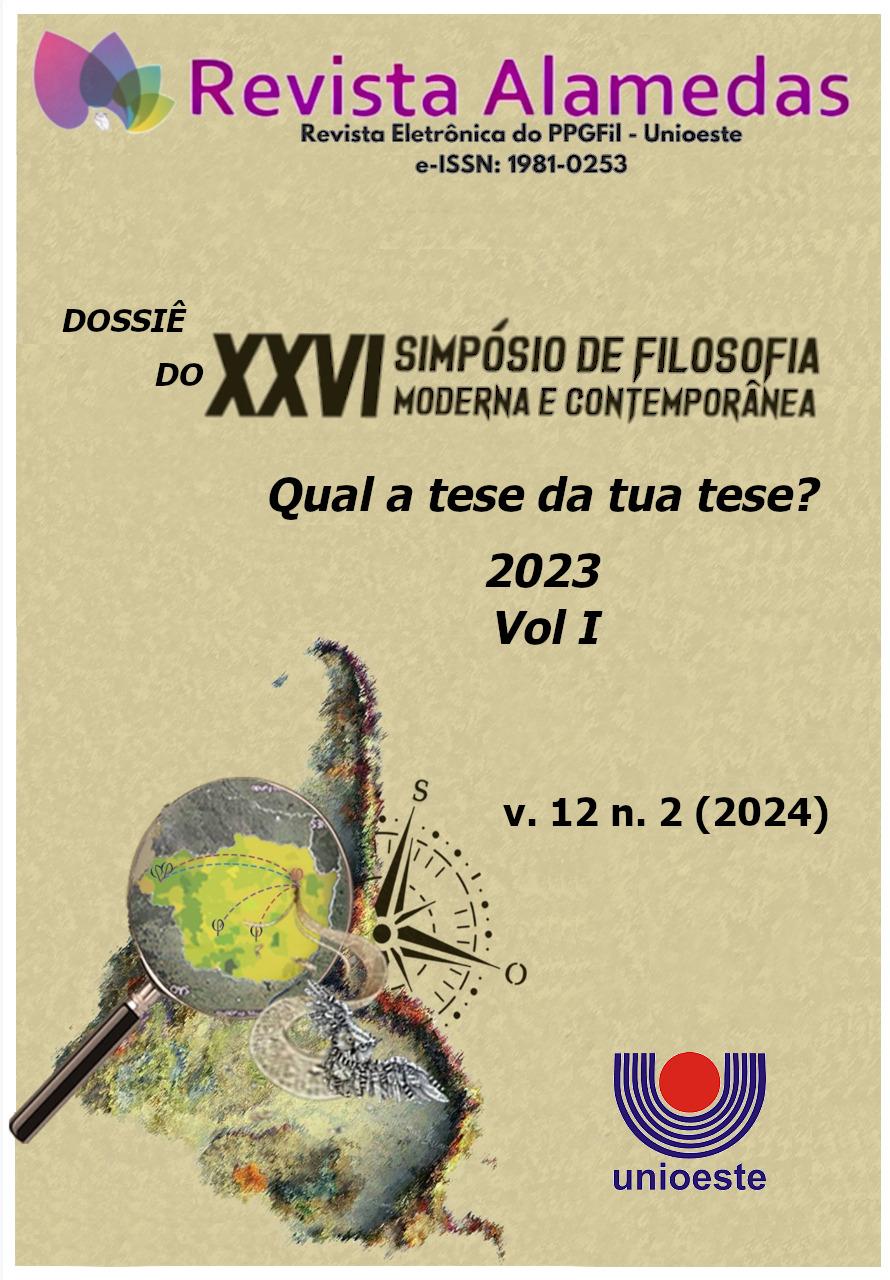A tese da minha tese: O conceito de ideia e a resolução do problema do solipsismo na metafísica cartesiana
DOI:
https://doi.org/10.48075/ra.v12i2.33111Palavras-chave:
Descartes, Problema do solipsismo, IdeiaResumo
O presente escrito tem como objetivo principal responder à pergunta sobre qual é a tese da minha tese de doutorado. Esta Pesquisa propõe uma discussão da metafísica de Descartes a partir de uma interpretação do seu conceito de ideia, especificamente aquele construído na terceira das Meditações Metafísicas. Busco compreender o que são as ideias e qual o seu papel principal na metafísica cartesiana, com resultados diferentes daqueles obtidos pelos principais comentadores do cartesianismo, especialmente em relação à já consagrada leitura de Martial Gueroult, segundo a qual o objetivo primordial da teoria das ideias presente na Meditação Terceira, bem como dessa meditação como um todo, é resolver o problema do valor objetivo das ideias. A presente pesquisa propõe uma leitura da Meditação Terceira segundo a qual há um objetivo mais fundamental a ser realizado pelas ideias na terceira das Meditações Metafísicas. A tese que se pretende defender aqui é a de que o objetivo primordial das ideias na Meditação Terceira está diretamente relacionado ao problema do solipsismo, o principal problema que Descartes se propõe a resolver nesta meditação. Ou seja, pretendo defender que o objetivo primordial da teoria das ideias presente na Meditação Terceira é provar que o Eu (sujeito) não existe sozinho, é afirmar a necessidade da existência de um outro. Para tanto, abordo as duas primeiras meditações, a fim de reconstruir o caminho percorrido até a Meditação Terceira, e compreender de que maneira se constitui o problema do solipsismo, que permanece até grande parte da terceira das meditações. Através da análise da teoria cartesiana das ideias, pretendo explicitar que o principal problema ali expresso é o de julgar que existem coisas exteriores ao sujeito de onde procediam as ideias; que o objetivo primordial da abordagem cartesiana das ideias tem relação com este problema, e consiste fundamentalmente em criar condições para que o sujeito possa admitir a existência de outro ente.
Downloads
Publicado
Como Citar
Edição
Seção
Licença
Copyright (c) 2024 Alamedas

Este trabalho está licenciado sob uma licença Creative Commons Attribution-NonCommercial-ShareAlike 4.0 International License.
Aviso de Direito Autoral Creative Commons
Política para Periódicos de Acesso Livre
Autores que publicam nesta revista concordam com os seguintes termos:
1. Autores mantém os direitos autorais e concedem à revista o direito de primeira publicação, com o trabalho simultaneamente licenciado sob a Licença Creative Commons Attribution que permite o compartilhamento do trabalho com reconhecimento da autoria e publicação inicial nesta revista.2. Autores têm autorização para assumir contratos adicionais separadamente, para distribuição não-exclusiva da versão do trabalho publicada nesta revista (ex.: publicar em repositório institucional ou como capítulo de livro), com reconhecimento de autoria e publicação inicial nesta revista.
3. Autores têm permissão e são estimulados a publicar e distribuir seu trabalho online (ex.: em repositórios institucionais ou na sua página pessoal) a qualquer ponto antes ou durante o processo editorial, já que isso pode gerar alterações produtivas, bem como aumentar o impacto e a citação do trabalho publicado (Veja O Efeito do Acesso Livre).
Licença Creative Commons
Esta obra está licenciada com uma Licença Creative Commons Atribuição-NãoComercial-CompartilhaIgual 4.0 Internacional, o que permite compartilhar, copiar, distribuir, exibir, reproduzir, a totalidade ou partes desde que não tenha objetivo comercial e sejam citados os autores e a fonte.


